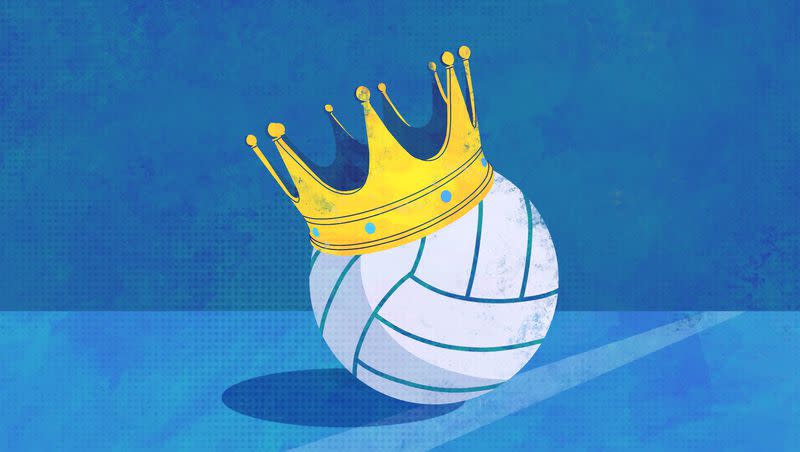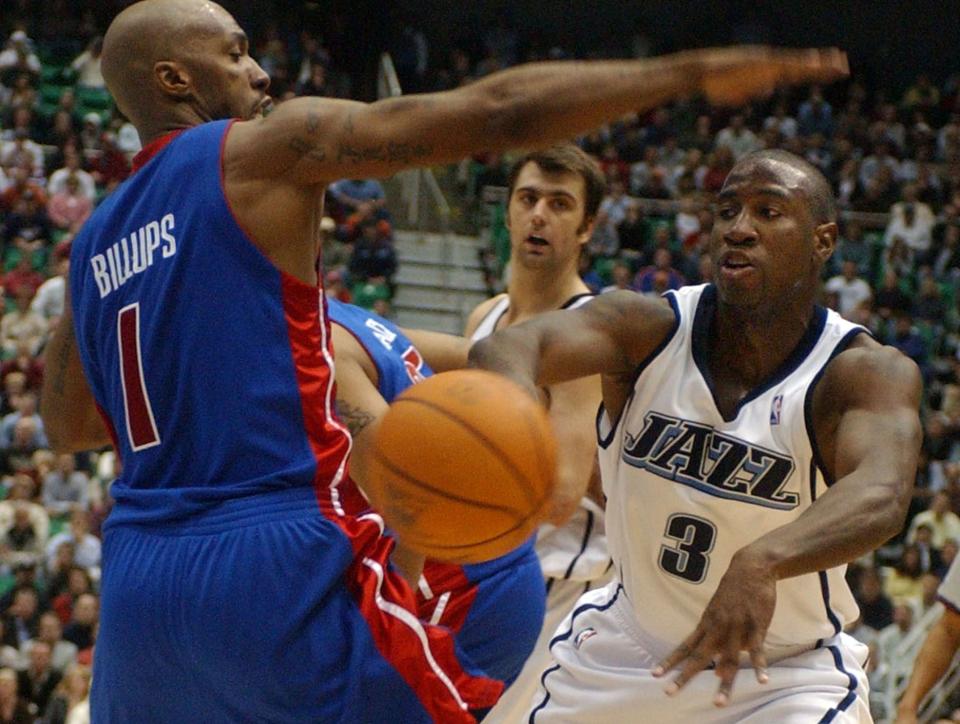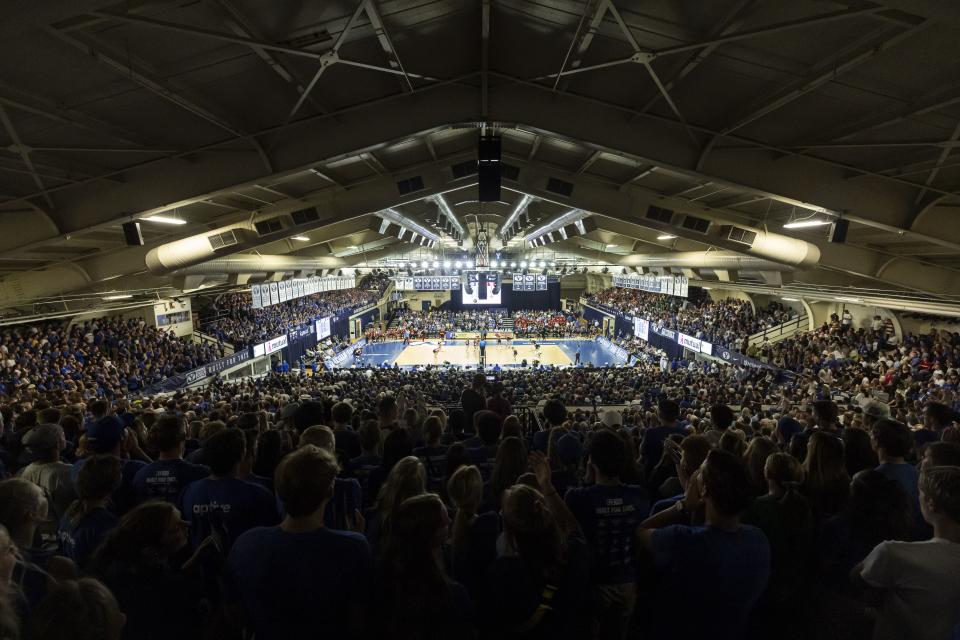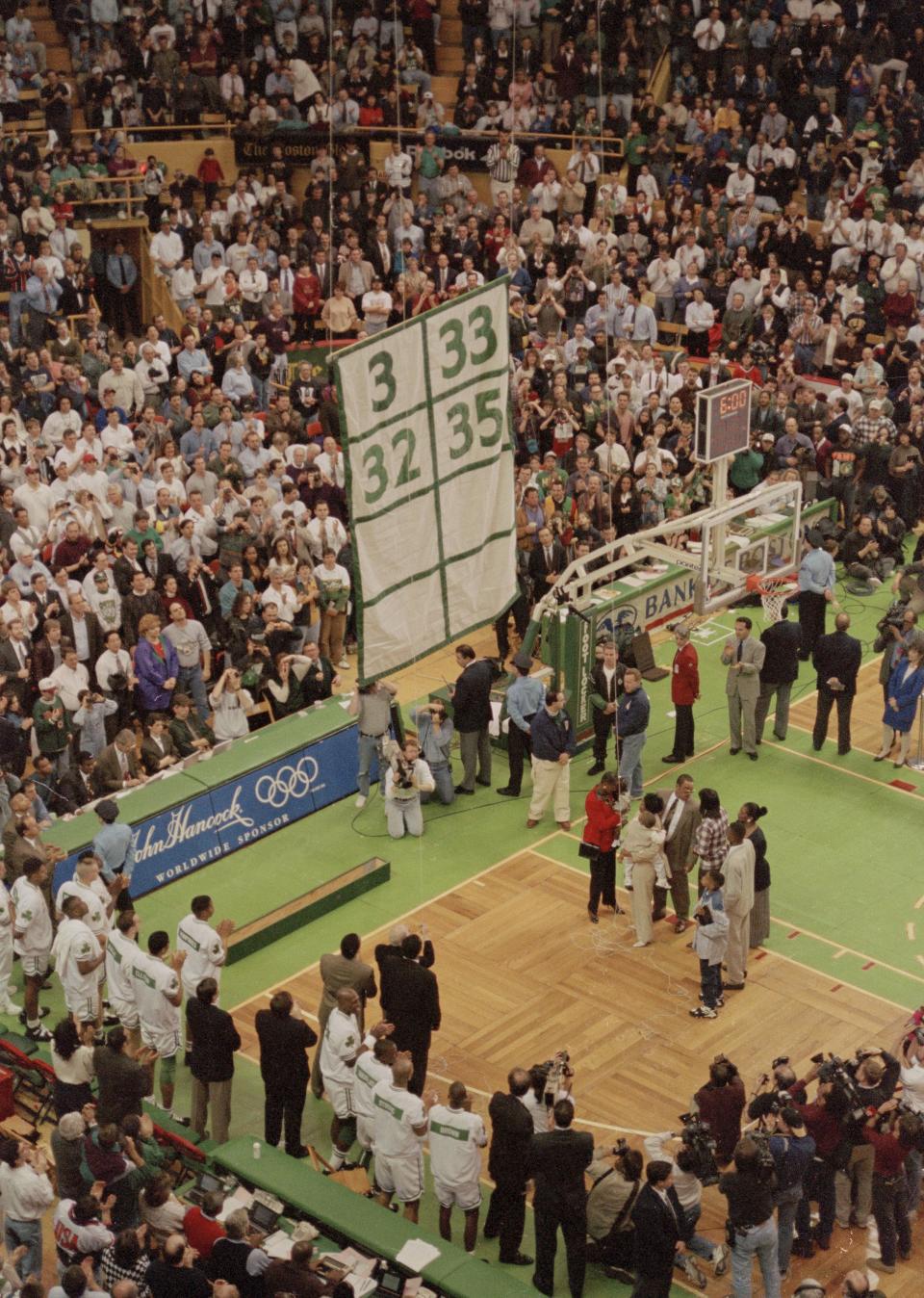Is home-court advantage real? And if it is — what explains it?

Emilee Turner stepped on the volleyball court at Marquette University as an opposing player and could feel the heartbeat in her chest. The pressure was real.
Just as she felt ready to compete, there was a distraction that challenged her focus.
“We would play at Marquette every year and they had the most annoying band playing all the time,” said Turner, who was playing for Seton Hall University at the time. “It was really hard to hear our coaches. They were right above the person serving so whoever was serving got an earful from the band yelling random stuff at them.”
Another challenging environment to play in was Creighton, Turner said.
“They would sell out their gym every time and it was so loud in there,” she said. “Whenever we went there we played horribly.”
Turner’s experiences at Marquette and Creighton likely sound familiar to athletes who’ve played the Utah Jazz in Salt Lake City or in Smith Fieldhouse at BYU. Both venues have earned a reputation for being home to incredibly loud fans.
The enthusiasm of a home crowd can help push a home team through challenging moments. And loud cheers can intimidate visiting players, as former Utah State volleyball player Corinne Larsen recently recalled.
“The (courts) that were bigger were always tougher, as well as the teams that got a lot of people to their games,” she said. “Some schools had obnoxious student sections too that made it hard to play at as well.”
Athletes like Turner and Larsen experienced it firsthand. But is it possible to quantify the effect of the “home-court advantage”?
The statistics behind home-court advantage
A 2008 Harvard study on home-court advantage discovered a link between the teams that won and the teams that rested the most prior to a game. It suggested that those who had to travel to a visiting arena would be less rested and therefore put up less of a fight.
“The fact that home teams in the NBA win so large a fraction of the time is quite a fascinating observation since it implies that factors other than the skill of the competing teams play critical roles in the outcome of games in professional basketball,” the study reported.

The study involved an analysis “of the 2,415 games which took place in the 2004-2005 and 2005-2006 seasons of the NBA.” It indicated that home-field advantage comes from travel schedules, in addition to crowd noise.
Here are other findings from the study:
The home teams scored 3.24 more points than the visitors on average for those seasons.
Researchers attributed 0.31 of those points to the lesser amount of rest the NBA schedule provides the traveling team.
And “2.93 of the points are associated with other, non-related factors,” researchers concluded.
Those other factors might be things like the cheers of the home crowd or the home team’s familiarity with the court.
“We had a couple of tight five-set matches that if it weren’t for us being at home, we might’ve lost them. The energy playing at home is unmatched,” Turner said.
Current BYU volleyball player Kate Prior told the Deseret News, “I’ve definitely had moments where playing on an opponent’s court made me a bit uncomfortable. It’s a whole different ballgame when you’re not in your comfort zone.”
Utah Now reported in 2022 that the Utah Jazz were crowned the “NBA team with third best home-court advantage,” with “an average win percentage at home of 72.32% — as opposed to 52.77% on the road,” which equals out to the Jazz winning “19.54% more games at home over the last five years.”
So what exactly is it about a home court that truly helps give these college volleyball players their wins at home just as it does for the Jazz in the NBA?
The environment of a home court can be electric
“It’s electric,” former BYU women’s volleyball player Kennedy Eschenberg said about playing in the home-court Smith Fieldhouse. “Fans at BYU are very dedicated, and it makes BYU games very special. I loved playing and feeling the energy in the Smith Fieldhouse —friends that I have that played for other teams also talked about how neat it was to feel that when they played on our court.”
The Daily Universe reported that in October 2018, nearly 3,000 BYU fans came to support “their undefeated women’s volleyball team,” as they were at the time the No. 1 team in the nation.
The National Collegiate Athletic Association’s reports that BYU is currently ranked as the No. 10 team, having won 13 games and lost three so far this season.
All three losses for BYU so far this season were during away games, so with 13 wins under their belt and 7 more home games left in the season, will the magic of the Smith Fieldhouse bring them higher in the rankings?
There might be hope, according to the stats and to current player Prior.
“Something I thrive off of is energy and that is something the ROC never fails to bring,” Prior told the Deseret News and then went on to further elaborate on another advantage that her home court gives her. “Me and my team spend a tremendous amount of time practicing and training there, which gives us a unique advantage.”

Eschenberg agreed, explaining what makes the Smith Fieldhouse games feel special is “a little bit of everything from the court — lights, signs, to just feeling more comfortable playing at a place where you always practice. I would say the biggest thing was the fans,” Eschenberg said.
Other factors in home-court advantage
Teams can also enhance their home-court advantage by doing more than getting loud fans in the building. The Boston Garden, home to the Boston Celtics until 1998, reportedly used the lack of air conditioning in its building as an advantage over opponents.
Celtics coach Red Auerbach said, “The Lakers used to complain how hot it was at the Garden, that it wasn’t air-conditioned. I said to them, ‘Hey, I don’t blame you for complaining because the half-a-court we play on is air-conditioned.’”

Boston Celtics History reported that along with the air conditioning tactic, players from opposing teams would complain about “dead spots” on the parquet floor of the Celtics’ home court.
While the Celtics are known for these traditions of “home-court advantage,” they are not the only team that has seen an advantage over their opponents when they play at home.
Bleacher Report found that in the Utah Jazz arena, “The lower bowl in the Energy Solutions Arena (now the Delta Center) is extremely steep, so it seems like the fans are actually on the court with the players. Most people will also tell you that it’s one of the hottest arenas, which is done on purpose to get the fans energized.”
In the 1996-1997 season, the heat also seemed to work for the Jazz as they went 38-3 at home, which in 2012 was reportedly “the third-best home record in NBA history.”
Larsen said that despite loud fans or loud, unfamiliar music, there is some anxiety that can come in to play when you are playing away from your home court.
“It’s an unknown, it’s uncomfortable. The floors are different, the lights are different, the ceilings, the balls, it’s all new and foreign,” Larsen said. “Home-court games were different because it was our territory, it was our court, our fans. It was much more easygoing and we were able to relax a bit more.”
Eschenberg recalled about watching other teams come to her team on her home court, “The Smith Fieldhouse has a ton of energy that sometimes takes teams off guard, but it is neat for them to play in a gym that feels like that and was really special for me to experience that throughout my career.”
Season length and rest factors into home-court advantage
Another factor in home-court advantage is the number of games in a season and how the length affects a team.
A study published by the Journal of Applied Social Psychology found that differences in season length help explain why home-court advantage is more powerful in some sports than others.
Turner said, “We definitely played and practiced a lot, and for sure the games get harder as the season goes on. Midseason you begin to see the wear and tear injuries, and a lot more people hurting themselves than when we first started.”
Though the physical courts and stadiums do pose challenges for players that are traveling away from their home court, another advantage the home team can have, according to players who spoke to the Deseret News, is that they have more time to rest.
“For performance, traveling for sure played an impact on you being tired. So it’s super important to get enough sleep and focus on recovering,” former University of Utah volleyball player Sarah Stephens said.
She added, “When you play on your home court you definitely get more rest in comparison to traveling. When you play on your home court you get to sleep in your own bed, practice on your own court but when you travel it is so much more exhausting and it can impact your game.”
Prior testified as a current player that “when you’re not sleeping in your own bed, the environment is unfamiliar, and you’ve got opposing fans trying to throw you off your game,” which can definitely make an effect but doesn’t truly rattle her game.
A 2020 study looking into NBA home-court advantage found that the “disruptions” of sleep and time from traveling for the opposing team can mess with the players’ ability to perform at their peak.
“The moment I stepped on the court, I felt no weakness and all adrenaline to play.” — Sarah Stephens
Andrew McHill, an occupational health scientist at Oregon Health & Science University, explained that traveling affects more than just professional basketball players.
“If you’re a businessman who needs to present a sales pitch, being accurate and precise could be very important. This study suggests that small misalignments between the internal body clock and a new time zone can impact your accuracy and impair performance. To best adapt, you’ll want to get acclimated to your new time zone as quickly as possible,” McHill said.
While playing at home may have its advantages, athletes still plan on bringing their best performance to the court no matter where they’re playing.
Stephens said that despite challenges you face playing either away or at home, “the moment I stepped on the court, I felt no weakness and all adrenaline to play.”

